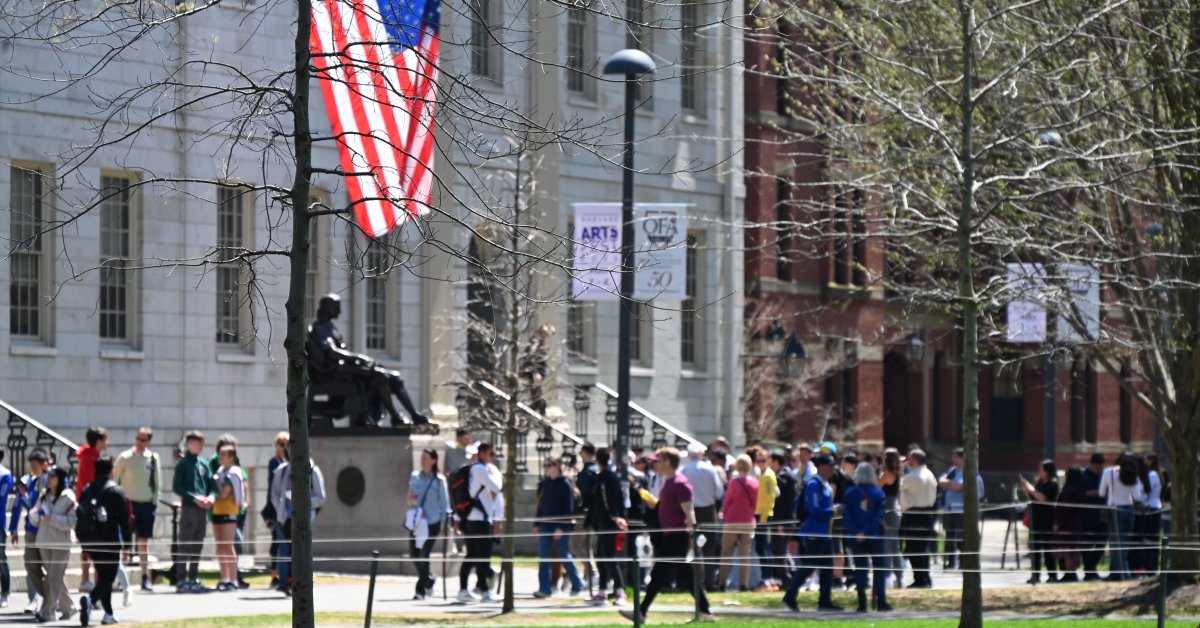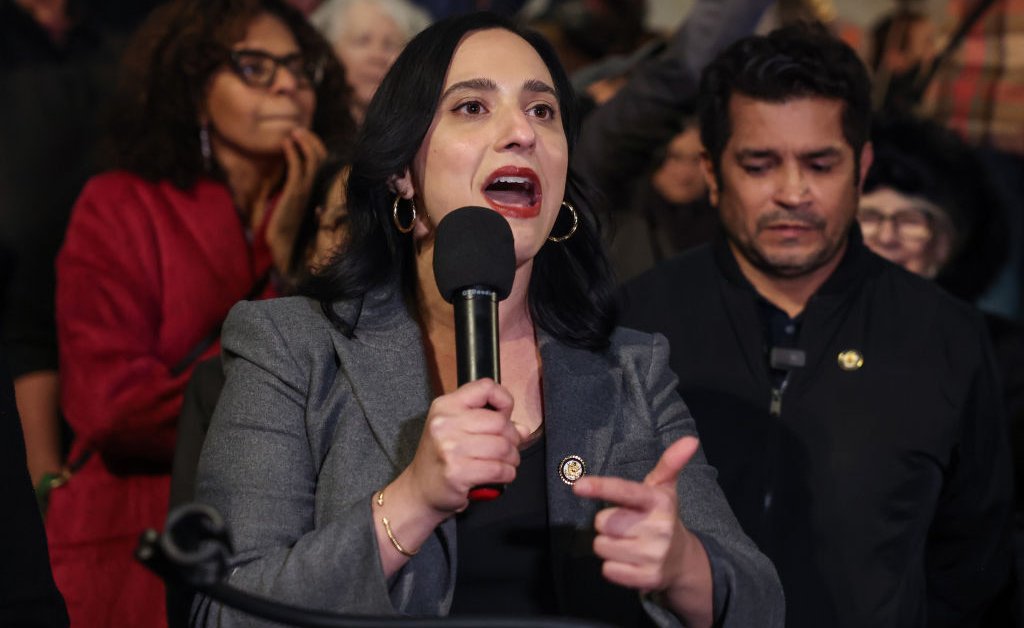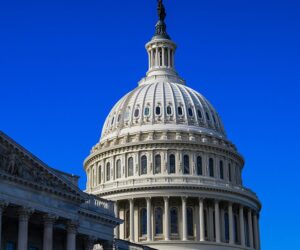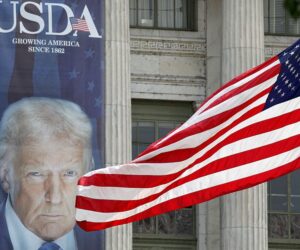There’s not a day that goes by that Miguel, a first-year PhD student from Spain, doesn’t appreciate his experience as an international student at Harvard University. But after a sudden punitive decision by the Trump Administration, Miguel—who asked to be identified solely by his first name—may be forced to face an unthinkable decision: transfer to another school or risk losing his opportunity to study in the U.S.
Miguel is one of roughly 6,800 international students at Harvard left in limbo after the Trump Administration on Thursday revoked the university’s Student and Exchange Visitor Program certification, which allows the school to enroll international students. The Trump Administration’s decision is already facing a legal challenge. Harvard University is suing the government over what it says is “clear retaliation for Harvard exercising its First Amendment rights to reject the government’s demands to control Harvard’s governance, curriculum, and the ‘ideology’ of its faculty and students.” A federal judge on Friday blocked the Administration from enforcing its revocation while the legal battle plays out.
The revocation of the Student and Exchange Visitor Program would prevent Harvard from enrolling international students for the upcoming academic year, and would force existing international students to transfer to another university or lose their nonimmigrant visa status, according to a letter sent by the Department of Homeland Security to the school and later shared on social media by Homeland Secretary Kristi Noem. DHS gave Harvard 72 hours to comply with a list of demands in order to reinstate its authorization.
The Administration’s move is the latest escalation in its attack on elite universities across the U.S., with heavy penalties levied on Harvard, including a threat to revoke the university’s tax-exempt status. Those penalties have only grown more severe as Harvard has refused to capitulate to the Administration’s demands.
“Universities like Harvard have been unequivocal in their stance—they will not surrender their constitutional rights and are prepared to fight back legally,” says Arkesh Patel, chief operating officer of higher education consultancy firm Crimson Education.
But the legal fight is likely to be protracted, says Simon Marginson, professor of higher education at the University of Oxford and director of the Center for Global Higher Education. In the meantime, international students are left in the lurch.
“We are all very scared,” says Miguel. “There is a lot of uncertainty still. We don’t really know what the immediate implications are for us current students in this context.”
The revocation “imperils the futures of thousands of students and scholars across Harvard and serves as a warning to countless others at colleges and universities throughout the country who have come to America to pursue their education and fulfill their dreams,” the university’s president Alan Garber wrote in a letter to the campus community announcing the lawsuit on Friday.
Read More: Harvard vs. Trump: A Timeline of Escalating Federal Pressure on America’s Top University
In an earlier statement to TIME, Harvard spokesperson Jason A. Newton called the DHS’ move “unlawful” and said the university is “fully committed” to enrolling international students. More than a quarter of the school’s student body hails from outside the U.S., according to university enrollment data for the 2024-2025 academic year.
International students left in disarray
Karl Molden, a sophomore from Austria, was on a family vacation when he heard the news. “I broke out in sweats,” Molden says, adding that he doesn’t know if he’ll be able to reenter the U.S. or continue his studies at Harvard in the fall semester.
“I’ve had the best two years of my life at Harvard, I’ve made some really amazing friends, and learned so much from other people beyond academics,” Molden says. “Having to leave Harvard would mean maybe not seeing some of them ever again. It’s really hard to speak about, because this has been my life, and right now it all seems like it’s falling apart.”
It’s a concern that many international students are now facing.
Miguel says he hasn’t yet thought about transferring schools, which he will likely have to do if Trump’s move is enforced. “We basically do not know how this affects us current students as of right now,” he says.
Previous actions by the Trump Administration have already left many international students confused about their rights in the U.S., as the Administration began quietly revoking thousands of students’ visas before reversing course, and targeting foreign-born students for deportation.
“We are scared that if we leave the country, we may not be able to reenter,” Miguel says. “Most of us have made a lot of sacrifices to be here, and have taken a lot of effort to make it to where we are today. Not being able to continue with the research that we have started, at the institution where we chose to study, is really scary.”
In the meantime, students should “avoid travel abroad unless absolutely necessary, as reentry may still be risky” and should “prepare for [all] possible outcomes if the injunction is lifted or the [Harvard] lawsuit fails,” says Pierre Huguet, CEO of H&C Education, a college admissions consulting firm.
Harvard’s lawsuit and students call revocation an attack on free speech
The move has come amid a broader crackdown on universities accused of failing to eliminate diversity, equity, and inclusion (DEI) policies and adequately quash pro-Palestinian activism on campuses.
“I didn’t come to the school to sit in class and remain silent,” Abdullah Shahid Sial, student body president and a sophomore from Pakistan, told Harvard’s student newspaper, the Crimson, in April. “I came here because I believe in the values which I was promised. I believe in the values which the United States once stood for: free expression, free thought, and fearless speech.”
Harvard Students for Freedom, a group formed to advocate for the rights of students in light of Trump’s crackdown on universities, called the decision “an anti-American attack on our core values of freedom and education” in a statement posted to social media.
Read More: Protests, Police, and Politics at Columbia University Take the National Spotlight Again: What to Know
In recent months, the Trump Administration has targeted students who participated in pro-Palestinian protests for immigration action, among others who had no connection to campus activism.
“Trump’s strategy is pretty clear, he’s trying to set an example out of a few people, like Rümeysa Öztürk and Mahmoud Khalil, and [through] that trying to silence many more,” says Leo Gerdén, a senior from Sweden and an organizer for Harvard Students for Freedom alongside Molden. Gerdén says the Administration’s actions have already chilled campus activism.
Read More: How the U.S. Betrayed International Students
“It creates a climate of fear that undermines free speech on our campus,” says senior Jada Pierre, who is American. Still, she says “the activism isn’t dying down, if anything it’s getting louder,” and both students and the university administration have pushed back.
The Trump Administration argues the opposite. “Consequences must follow to send a clear signal to Harvard and all universities that want to enjoy the privilege of enrolling foreign students, that the Trump Administration will enforce the law and root out the evils of anti-Americanism and antisemitism in society and campuses,” the DHS letter reads.
“Let this serve as a warning to all universities and academic institutions across the country,” Noem posted on X, alongside the letter.
“The government argues its actions are a response to Harvard’s alleged noncompliance with federal efforts to improve campus safety, particularly for Jewish students,” says Huguet. “Harvard’s lawsuit, on the other hand, contends that these actions violate First Amendment protections, suggesting that its disagreement with federal policy is being punished through immigration enforcement.”
Huguet notes that the central argument as to whether this impacts freedom of speech has “become a matter of perspective”—but either way “these conflicts are eroding the U.S.’ credibility as a haven for free expression and liberal thought.”
Meanwhile, Marginson says it’s freedom of expression that makes the U.S. attractive to foreign talent.
“The U.S. appears to offer a freer atmosphere than at home, and the sense that you can make up your own mind about things,” says Marginson. “The U.S. loses that now in this environment, if [the Administration’s demands] persist.”
A drop in enrollments risks prestige of American higher education
International students contribute critically to the U.S. economy through tuition fees and local spending, says Janet Ilieva, the founder and director of research consultancy Education Insight. In the 2021-2022 academic year, international students in the U.S. generated nearly $34 billion and supported over 335,000 jobs, according to nonprofit association of professional educators NAFSA.
“If enrollment drops, it could impact not only the richness of the academic experience, but also the financial model of many institutions that depend on international tuition fees,” Patel says.
“The U.S. has a reputation for independent, autonomous universities,” Marginson notes, arguing that the Trump Administration “wants to bring them to heel.”
If Harvard’s lawsuit fails, it would “legitimize the idea that immigration status can be weaponized to suppress dissent,” says Pierre, adding that “international students should never be used as bargaining chips.”
The consequences of removing international students at Harvard could have long-term consequences on the U.S.’ ability to attract foreign talent—not only in higher education, but also in shaping its word-class research. “Some of the best people from around the world get together at Harvard to find solutions to the millions of unanswered questions,” Miguel says.
While Ilieva adds: “Banning students from attending one of the world’s most prestigious universities risks significantly undermining the United States’ soft power and reputation as a premier global study destination and scientific powerhouse.”
The curtailing of academic freedom at Harvard would indicate the “obvious” potential for it to happen at other elite institutions, like Yale and Princeton, says Marginson, noting that universities across Western Europe and East Asia, particularly China, could benefit by attracting the talent that would have otherwise gone to the U.S. Already, the Hong Kong University of Science and Technology has said it will provide unconditional transfer offers to Harvard international students affected by the ban, with several other universities in Hong Kong following suit.
Patel says that some prospective students have already expressed concern about recent political developments in the U.S. Other prospective students being advised by the higher education consulting firm Crimson Education have leaned towards the U.K. or other alternatives to the U.S.
“The U.S. has been the premier system,” Marginson says. “And Harvard’s reputation carries the U.S. system to some extent. For Harvard to be substantially weakened in the eyes of the world is for the U.S. higher education system to be somewhat weakened.”








